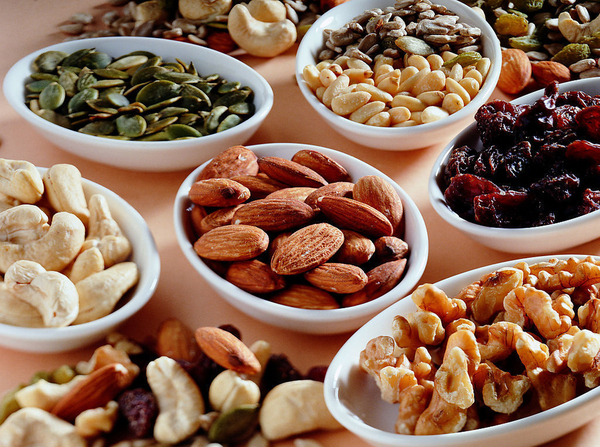This is Scientific American — 60-Second Science. I'm Christopher Intagliata.
Your nose may be the first place you think of as a source of mucus. But mucus is a major player in your gut, too. "There's antimicrobial peptides and proteins that are present in there. Bacteria live in there and forage on the carbohydrates. And it's a lubricant, it helps sweep contents down the GI tract, without injuring the epithelial layer."
Eric Martens, a microbiologist at the University of Michigan. He says farther down the GI tract, in the colon, the mucus builds a wall: a barrier against friendly bacteria, "as well as pathogens that could be transiting through." But here's the problem: your gut bacteria may chew right through that wall—if you skimp on fiber in your diet.
Martens and his team modeled that scenario in mice who'd been born free of microbes. They seeded the mice's guts with a human gut microbiome—then fed them a high-fiber diet: raw milled corn, whole wheat, whole soybeans and oats. "It's about as raw of a diet as you can get." The human equivalent: double our recommended daily intake of fiber. "It's a lot of kale."

That extreme high-fiber diet helped keep the mucus barrier intact. But in mice that had zero fiber—or the kind of soluble fiber typically added to processed foods—the fiber-eating members of the gut dwindled. Their absence opened up more real estate for mucus-munching bacteria, which boomed in number, and tore through the protective mucus wall—leaving intestinal cells open for microbial attack. The study is in the journal Cell.
The results suggest that "the recent history of your diet could predispose how you react to an enteric pathogen." And they're yet another endorsement of the magical properties of plant fiber. "Eating natural vegetables, raw vegetables, cooked veggies, whole grains, is definitely good for you." The good news is, the mice's gut bacteria bounced back within a day to a change in diet. So eat for the gut you want. Not the gut you have.
Thanks for listening for Scientific American — 60-Second Science Science. I'm Christopher Intagliata.












